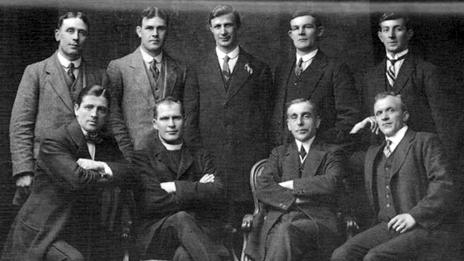Six Nations: How did Welsh rugby become a game for all?
- Published
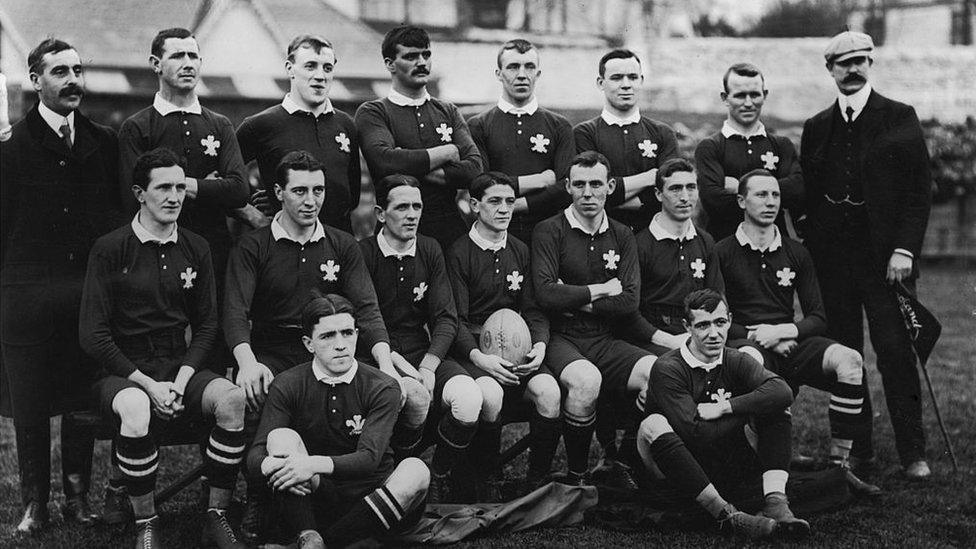
Rhys Gabe (middle row, third from right), one of Wales' finest internationals, worked as a teacher and played in a team from all corners of society
Wales has, for as long as anyone can remember, been a rugby nation.
The team was dominant in the early 20th Century, developed one of the all-time great sides in the 1970s and last year won a Grand Slam before reaching the semi-finals of the World Cup in Japan.
Wales has always held a unique position in northern hemisphere - if not world - rugby. It is a sport played by all.
Unlike in England, Scotland and Ireland - where the union game remained true to its public school origins and amateur nature - Welsh rugby saw lawyers and doctors line up alongside dockers and miners for both club and country.
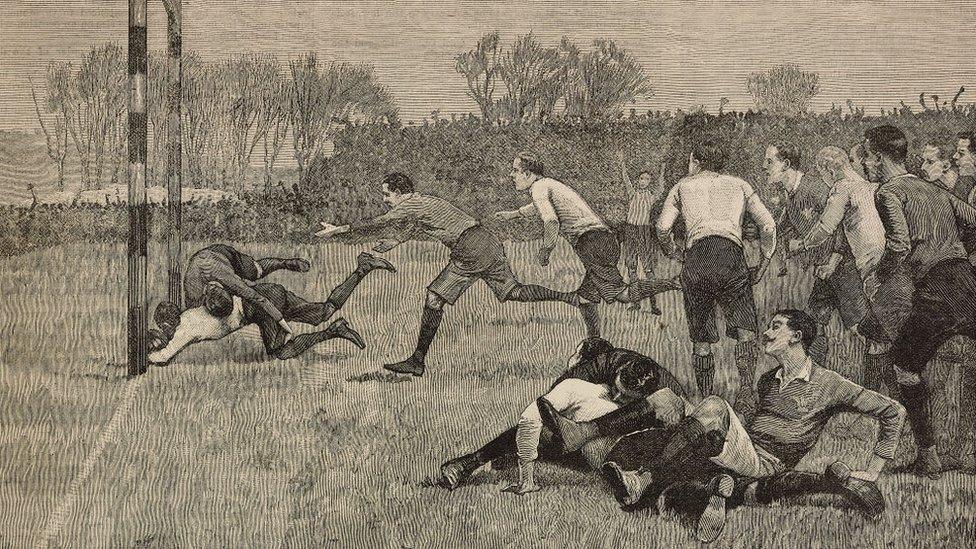
England and Wales faced off at Blackheath, London, in 1892 - before the crucial split between union and league
Tony Collins, history professor at De Montfort University in Leicester, said there were a number of reasons behind rugby's development as "a game for all classes" in Wales.
"Wales represents what rugby could have become in terms of its social appeal," he said.
"Rugby was obviously started by young men in private schools....but as society changed in the late 19th Century more and more people from different backgrounds came into the game and gave it a sense of local identity.
"Traditionally, people living in working-class areas of Wales will still see themselves as rugby fans regardless of where they come from, whereas in parts of England, Scotland and - apart from Munster - it's not really the case in Ireland either."
The people's game
The south of Wales had seen a boom in population in the 19th Century, with hundreds of thousands of people flocking to the cities and valleys for work in the nation's rapidly growing industries.
Newly emerging sports, such as rugby and soccer, became a source of local pride for competing towns, and the first time this local identity was demonstrated was the inaugural South Wales Challenge Cup, in 1877-1878.
Eighteen clubs entered and 2,000 spectators watched Newport beat Swansea 1-0 at Bridgend in the first final.
But, at this time at least, Wales' love of rugby was not unique in Britain, with rugby popular in many industrial areas.
Prof Collins said: "Across the north of England rugby was a more popular game than soccer and Wales continued that tradition - it was a game played by everyone and represented everyone. It was your game and it represented something."
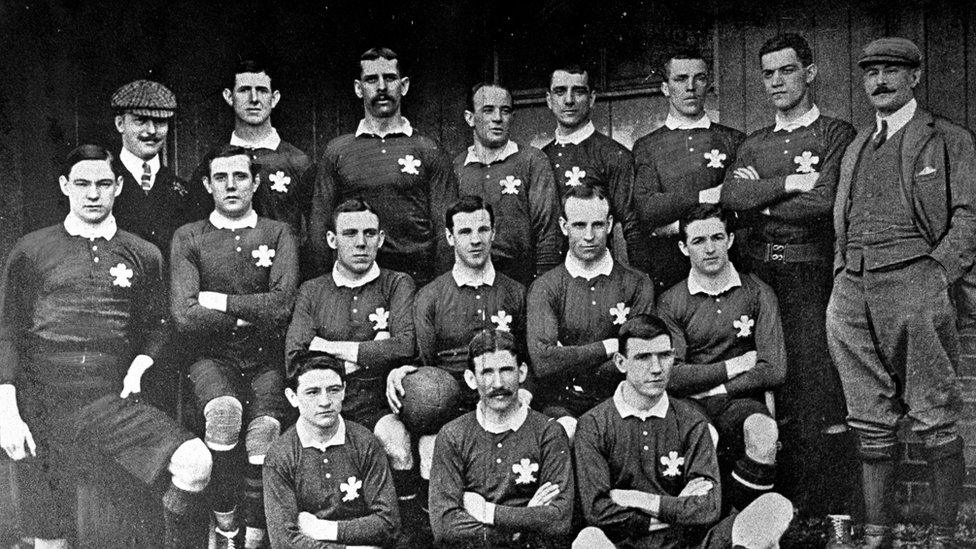
Wales' Triple Crown winning team of 1905 helped cement rugby's popularity in south Wales
Boot money
But while rugby had mass appeal in the late 19th Century, the newly-formed Rugby Football Union (RFU) in England was desperately trying to hang onto its middle-class genesis.
Players from working-class backgrounds - mainly in the south of Wales and north of England - had started to expect a wage for playing the game in order to compensate for time spent away from their first jobs.
The RFU still saw the game as amateur, and when it banned payments to players, clubs from Yorkshire and Lancashire split away - leading to the creation of rugby league in 1895.
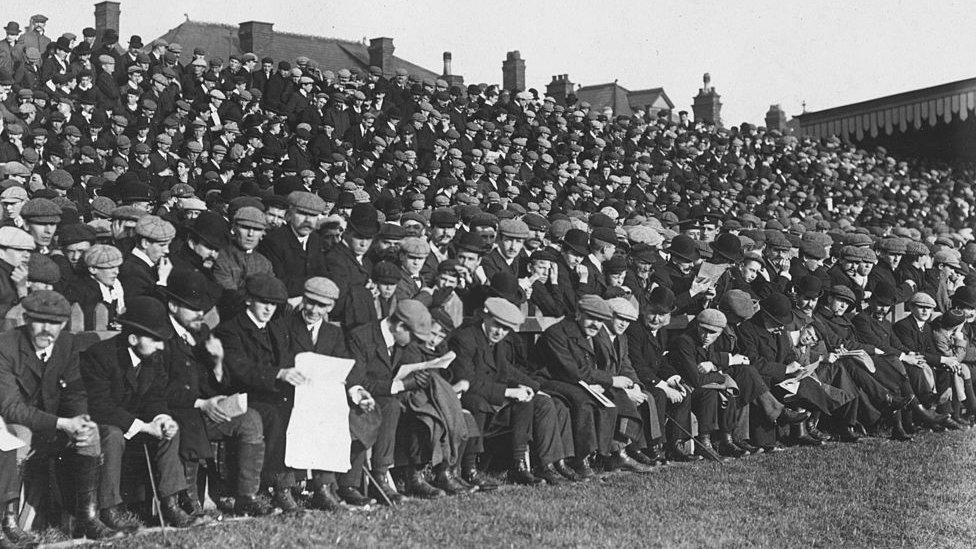
Thousands packed out Rodney Parade for a match between Newport and South Africa in 1906
But while the move hampered the development of union in the north of England, Wales was able to survive and thrive.
Players were sometimes given secret payments, often known as "boot" money, for their services, but the RFU - taking the lead on amateurism across world rugby - did not police these payments as strictly in Wales as they had in Yorkshire and Lancashire.
"Partly because Wales had its own rugby union, it didn't represent such a threat to the RFU," Prof Collins said.
"They decided to turn a blind eye to payments in Wales, which they would not do in the north of England.
"If they forced the issue over payments in Wales they could break away, so it was a kind of compromise where the Welsh Rugby Union would pretend it wasn't paying players and the RFU pretended to believe them."
It meant Wales was able to keep most of its best players in union while many in England began playing league.
Success in the 1900s
The change saw an upturn in results for the Welsh national team, who went unbeaten in 10 matches against England in the early 20th Century - a streak which Prof Collins said helped keep rugby union as Wales' premier sport.
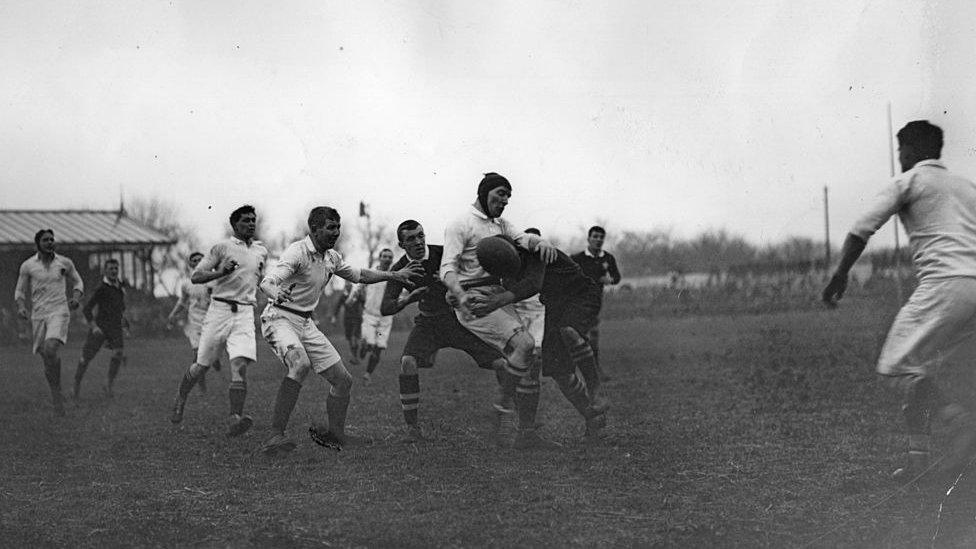
Wales beat England 22-0 in 1907 - the eighth game in a row England failed to beat their rivals
"I think a large part of that is that at the beginning of the 20th Century the Welsh football team struggled internationally and against the home nations, but the rugby team could compete," he said.
"It made the game even more important and popular."
- Published15 November 2019
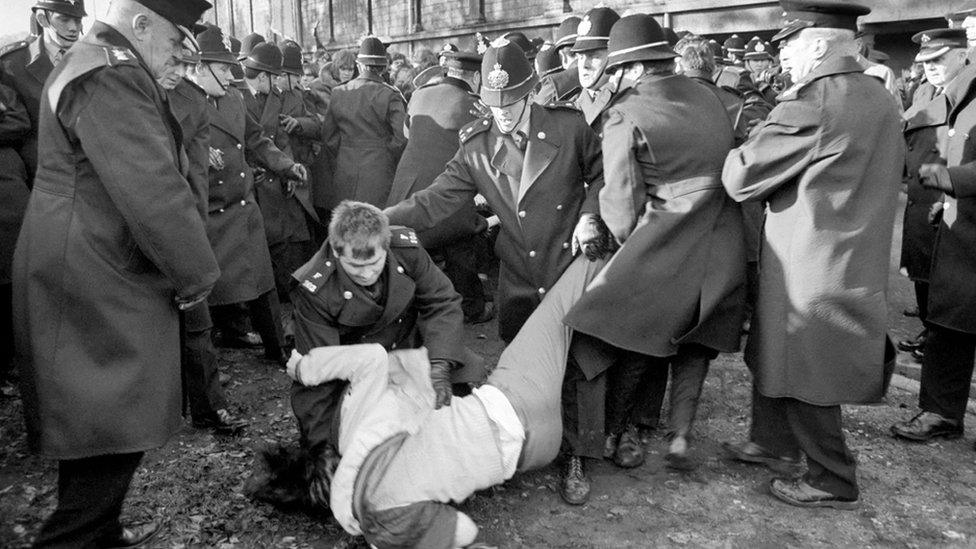
- Published4 January 2020
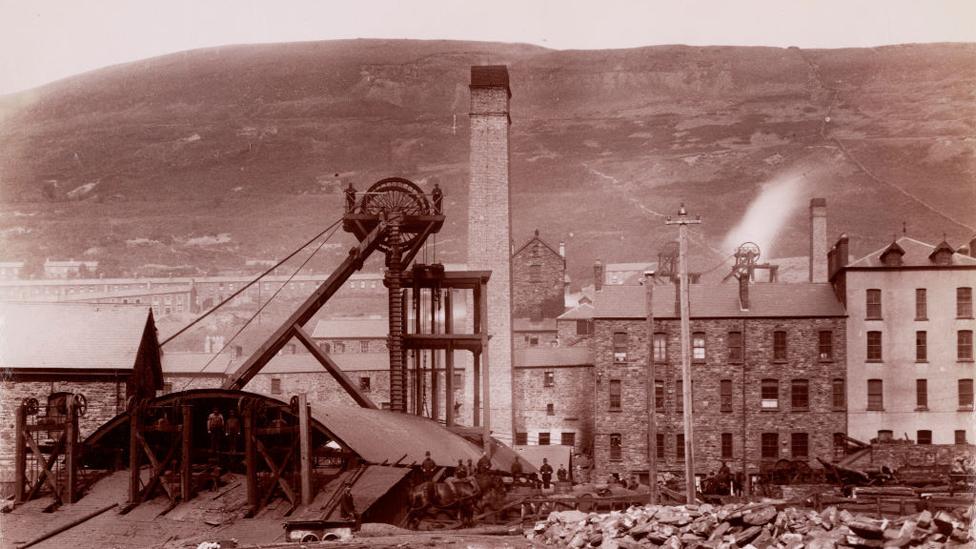
- Attribution
- Published27 December 2019

- Published20 September 2015
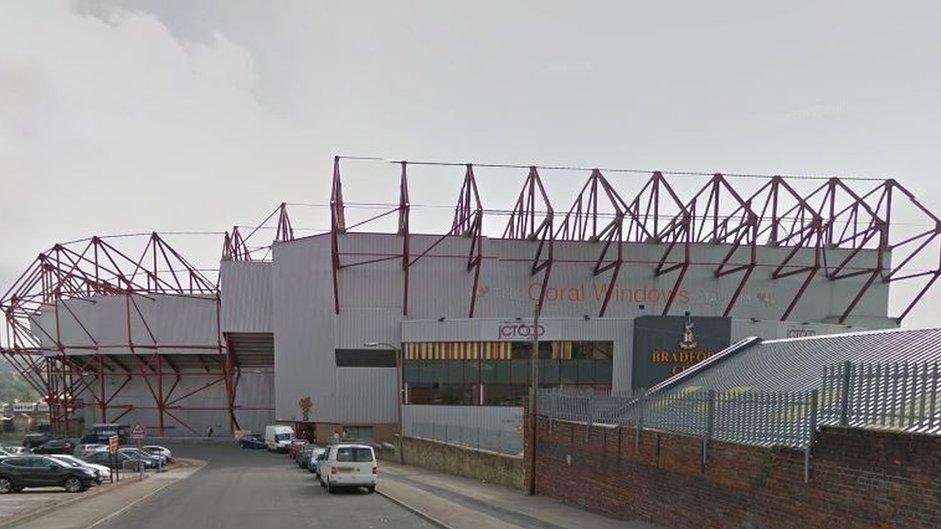
- Published1 February 2014
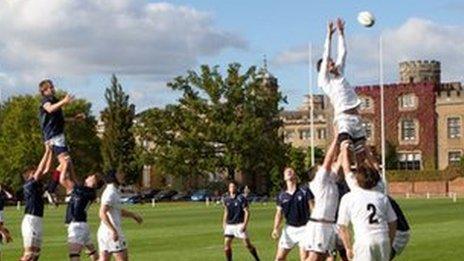
- Published11 March 2018
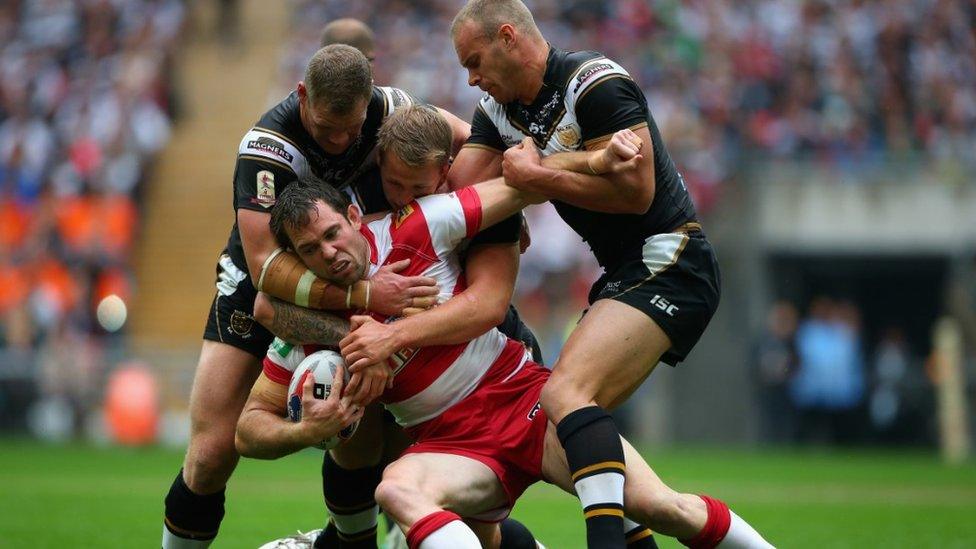
- Published26 January 2014
